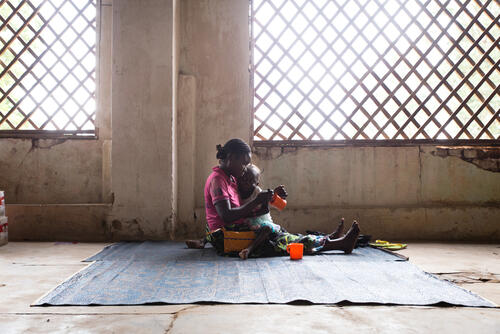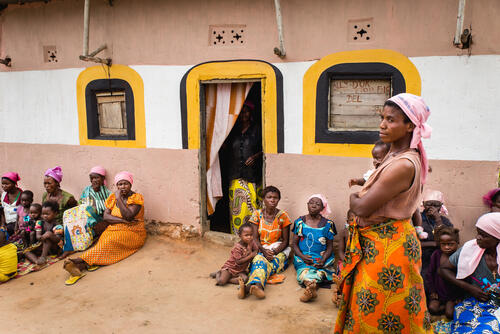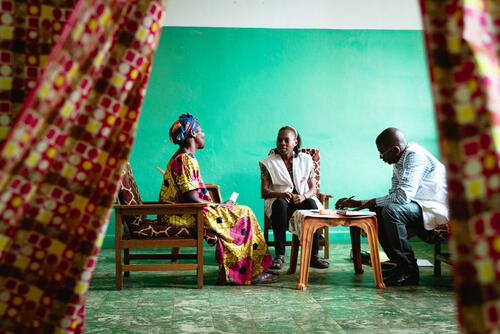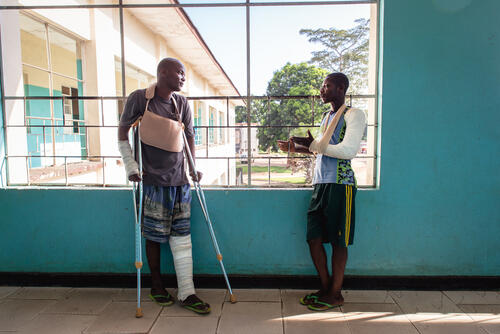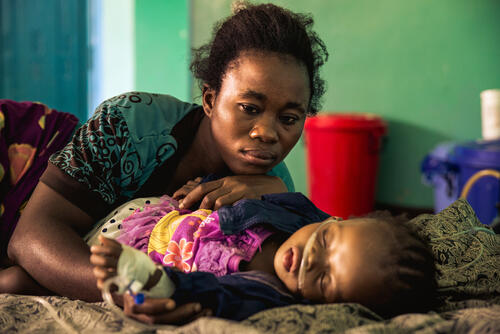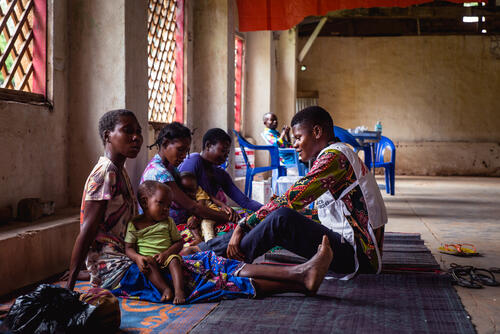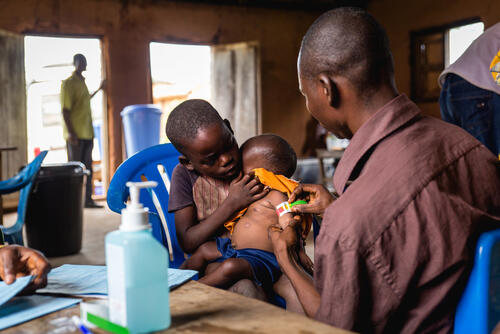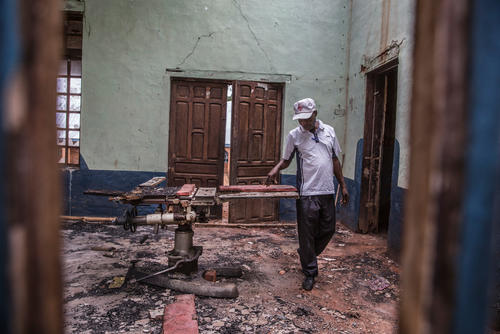We will continue to support and strengthen the local health systemDr Hilde Vochten, MSF medical coordinator in DRC
Médecins Sans Frontières (MSF) has reopened the surgical unit at Kananga Provincial Reference Hospital (HPRK), where the organisation has been providing medical and psychological care for victims of sexual violence since May 2017. In addition, MSF has set up a new project in the Tshikula health zone, providing maternal and child healthcare and emergency response.
The objective in both cases is to continue to provide assistance to populations in need and support the local health system, which has been heavily affected by the consequences of violence in the Greater Kasai region, Democratic Republic of Congo (DRC).
These two recent openings have been made in parallel with the withdrawal of MSF from nutrition activities in the Tshibala health zone, as the organisation endeavours to adapt to the changing humanitarian needs of a context still characterised by pockets of violence and sporadic population movements.
This volatile context has a direct impact on access to healthcare, which remains a challenge, and on the healthcare response, which remains inadequate and unable to respond to emergencies and the needs of the most vulnerable.
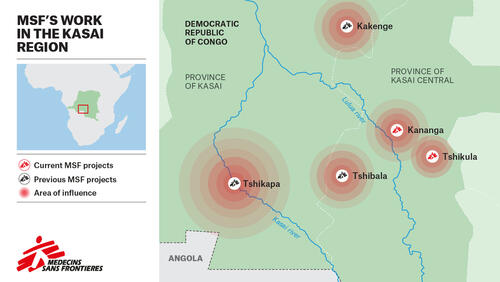
"The goal of all our projects is not only to treat patients in our structures or the structures we support, but also to reach – through mobile clinics and regular field visits – those living in villages and the most remote places, where the impact of the violence has often been greatest," says Dr Hilde Vochten, medical coordinator for MSF in DRC.
Since MSF began responding to the crisis in the Greater Kasai region in May 2017, the organisation has implemented medical projects in a total of five localities in the provinces of Kasai and Kasai Central: in the capitals, Tshikapa and Kananga, and in Tshibala, Kakenge and Tshikula.
The organisation has since wound up some of its activities and programmes or handed them over to the Ministry of Health and other organisations following a reassessment of the changing needs from a medical and humanitarian point of view.
"For the past year and a half, our teams have provided medical aid and assistance to victims of sexual violence, malnourished children, and patients with severe wounds and injuries requiring surgery. We will continue to support and strengthen the local health system," says Dr Vochten.
Since August 2016, the Greater Kasai region has experienced widespread violence that has claimed the lives of more than 5,000 people, and displaced some 1.4 million people at the peak of the crisis. In recent months, hundreds of thousands of people have gradually returned to their villages of origin, but the humanitarian needs of the people in this region remain immense and largely unanswered.
MSF has been working in DRC since 1977, offering medical care to victims of conflict and violence, displaced people, and victims of epidemics or pandemics such as cholera, measles and HIV/AIDS. MSF has also been at the forefront of the response to the Ebola outbreaks that have hit the country in recent decades.



